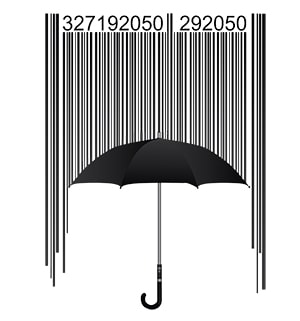Oman Consumer Protection Law
“Competition is not only the basis of protection to the consumer but is the incentive to progress” – Herbert Hoover
Introduction
 Consumer protection is a vital part of a healthy economy. Every country has its regulations in place to ensure the consumers are treated fairly and receive the protection that they deserve and require. The relationships between consumers and the companies they interact with and make purchases from is a complex one. On the one hand, it may appear as though the business entities have a higher level of power over their target audience as they are often large and highly profitable organizations. However, we can also consider this from the opposite angle. The consumers and the choices they make are what give the entity any power it may have, and so in a way, they may be the more important and influential.
Consumer protection is a vital part of a healthy economy. Every country has its regulations in place to ensure the consumers are treated fairly and receive the protection that they deserve and require. The relationships between consumers and the companies they interact with and make purchases from is a complex one. On the one hand, it may appear as though the business entities have a higher level of power over their target audience as they are often large and highly profitable organizations. However, we can also consider this from the opposite angle. The consumers and the choices they make are what give the entity any power it may have, and so in a way, they may be the more important and influential.
The key here is that while both sides are undoubtedly essential and hold sway in this argument, it is generally clear and evident that the strength of the consumers come from their freedom of choice and vast numbers. Individually, one person cannot hope to sway a company, and this could potentially lead to abuse of power. However, this has been noted and is the very reason behind the consumer protection legislation.
Consumer protection law generally covers a few essential areas and rights. These include:
- The consumer’s right to correct information for what they are looking to purchase;
- The right to be free to choose where they wish to make their purchases from;
- The right to receive products of an appropriate quality to what one would expect and to what the advertisements showed or demonstrated;
- The guarantee of a product that is of the proper health and safety standard;
- Fair compensation when and where it is necessary for the event of damages suffered; and
- The right to not receive discrimination based on their religious values, customs, and beliefs.
While these are the rights of the consumer, it is also the obligation of the producers, advertisers and other bodies that are involved in the process to ensure violations of these rights do not occur
Oman’s national consumer protection legislation is the Royal Decree Number 66 of 2014 (the Consumer Protection Law)
Royal Decree Number 66 of 2014
Decree Number 66 is the Sultanate of Oman’s central regulation on the matter of consumer protection. It came into effect upon its publication in the national gazette on November 30, 2014. It covers all of the basics relating to both the rights and protections of the consumer and also the responsibilities and duties placed upon the producers to ensure the realization of those rights.
Chapter 1 of the regulation covers the definitions and overarching provisions of the law and is the basis for the remainder of the Legislation.
Beyond the basic concepts of rights and duties that are specified, the matter of regulatory violations and penalties also receive attention within the law.
Chapter 3 relates to the duties and requirements upon the provider and Article 20 states that:
- The provider and advertiser shall be under an obligation for transparency and credibly and shall refrain from any acts of misleading publicity and advertisement upon the promotion of the commodity or the services offered to the consumer.
A case which relates to this occurred around November of 2016, in which a consumer purchased a motorcycle. However, they realized once they received the bike that is was not to the specifications as advertised and promised. The engine size and power of the motorcycle acquired were below what the producer promised, and so the consumer sued them. The court ruled in the consumer's favor, with the defense party receiving a fine of OMR 100, and the court fees were to be paid by them. Further, the contract between the parties was then also terminated. The court finally ordered that the original agreement should then be satisfied by the producer.
 Article 23 of the regulation states that:
Article 23 of the regulation states that:
- Optimally providing services to the consumers is critical, and a deadline should be provided for when the service will fully complete, and this deadline should also further be realistic. Failure to ensure this shall result in the producer being liable to refund the consumer the value of the good or service or a similar such repercussion.
A case in which this regulation came into play was also in 2016. Here, the consumer hired a tailoring company to produce for them custom curtains and couch designs, and also to design their bedroom. The producer failed to do so within the set time, and so the consumer filed a claim against them. Similar to the case mentioned above, the court ruled in favor of the claimant, and the producer received a sentence of 10 days in prison as well as an OMR 100 fine.
Chapter 2 Article 14 of the regulation stipulates all of the rights of the consumer, and they are very much in line with and include all of the points stated in the introduction to this piece.
While this is the critical regulation in place for the area of consumer protection, there is also the Public Authority for Consumer Protection within the country.
Public Authority for Consumer Protection (PACP)
The PACP first arose through the Royal Decree Number 26/2011. The formation of this body aimed to ensure that an establishment existed within the country that could be relied on by consumers to cover them and ensure they do not experience unfair treatment or are not taken advantage of by large organizations; this was published in the official gazette and commenced on February 28, 2011
Further to Royal Decree Number 26/2011, there is also the Royal Decree Number 53/2011 which promulgated the law; this was also published in the official gazette at a later time and commenced on April 6, 2011.
Both of these regulations came into effect upon their publications in their corresponding gazettes.
The general duties of the PACP are generally all consumer protection related, and some of their key responsibilities are as follows:
- Ensure the implementation of the Sultanates general policies relating to consumer protection in coordination with the other government bodies;
- They should ensure through the use of questionnaires and surveys that consumers are in a good position, and just how this can be improved;
- They should ensure that consumers are aware of their rights through the laws; achieving this could occur through the distribution of magazines and pamphlets;
- Encourage fair and plentiful competition across all industries to provide the people with a wide variety and prevent the formation of monopolies; this will help more mainly with the growth and well-being of the country’s economy as a whole; and
- Look to promote international cooperation in the field of consumer protection.
These are the general aims, and so it is clear that the PACP plays a significant part in ensuring the healthy economic growth of the Sultanate. Competition is key to any economy as it provides that companies profit based on their products and services as well as their treatment of consumers. Further, it will push businesses of all types to improve continuously to attract clients through their hard work and commitment. Readers are welcome to drop any specific inquiries on PACP to our team of lawyers in Oman and Lawyers in Dubai.
International cooperation in this area will allow for Oman to make a name for itself and become known around the globe as a place of fair trading and protection of its people’s rights, which could further help to boost its economy. It would do this by attracting more international business into the nation, which would have a ripple effect of furthering the levels of competition even more significantly.
Another role of the PACP is that of being somewhat of an available figure by the consumers. Should they have a matter in violation of their consumer protection rights, they can approach the PACP and begin proceedings against the company in violation.
An example of this is that of a case that occurred in the year 2016 in which a consumer approached them with a situation in which they did not receive the appropriate change from a commercial center. The PACP visited the center to confirm this, and following their investigation, they found this to be the case. The case then proceeded to a court, and the accused received a sentence of three months of imprisonment.
While the PACP themselves cannot act as the judging party in the cases brought before them, they do function as somewhat of an available official body that can look into these issues. Should they investigate and find something to violate the consumer protection regulations, they can escalate the case to the courts for a final verdict and the delivery of the appropriate penalty.
 The General State of Consumer Protection in the Sultanate of Oman
The General State of Consumer Protection in the Sultanate of Oman
The consumer protection rights as they are at this time established within Oman, are relatively new, with the regulatory body arising in only 2011 and the Consumer Protection Law being created and implemented in 2014.
However, the idea is right and appropriate, and more so than merely protecting consumers once damage has already occurred, there is a larger goal to be achieved. With the overarching aim of increasing competition and preventing the rise of monopolies, the area is receiving opposition from the roots. The regulations are concise and straightforward leaving no room for misunderstanding.
Finally, the international exposure that is part of the PACP’s goals may have a significant effect on exposing the country’s markets and standards to the world, and this could have great profound long-term outcomes.
 English
English
 عربي
عربي Русский
Русский 官话
官话 português
português
 Türk
Türk 



